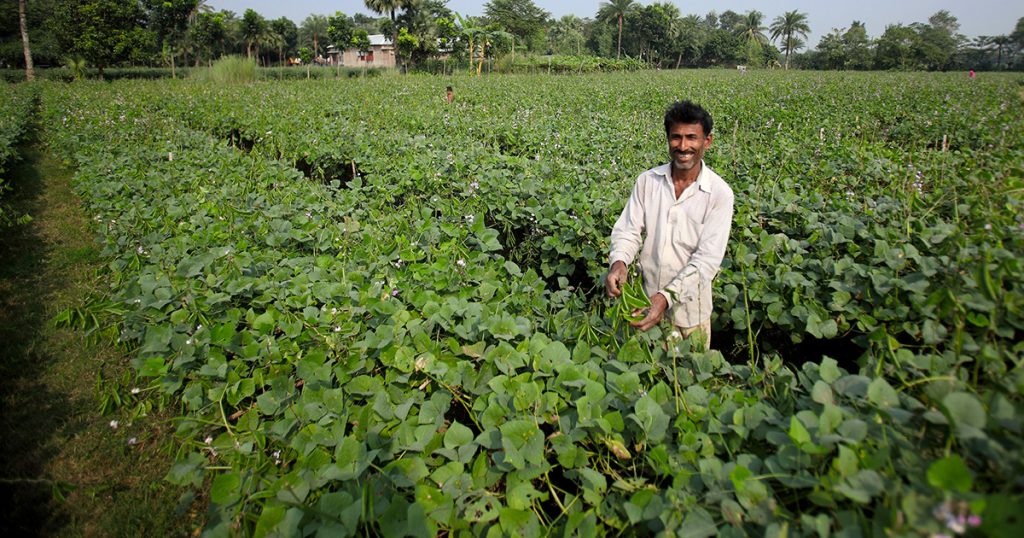The world is already facing a global food crisis, and it is expected to worsen, with climate impacts anticipated to wipe out 30% of the world’s food production by 2050. Our biggest strength in facing this crisis are the people most exposed to it – smallholder farmers, who produce one-third of the world’s food. Insights from Bangladesh provide valuable guidance on how crop insurance can support these farmers to tackle the challenges ahead.
“Potato crops are like procrastinating students before exams – they do most of the work in the last week of their growth cycle.” muses Shakila Akter.
“Last year, I was a week away from harvesting my 0.1 acre of potatoes when a coldwave dawned early. I watched my plants shrivel and I could feel the shrinking harvest hidden under the soil waiting for me”.
Northwestern Bangladesh, where Shakila lives and farms, is known for extreme weather. The climate crisis is exacerbating the extremes, with winters rapidly getting colder and summer temperatures testing thermometers – and the heat tolerance of farmers. Shakila lives in Gaibandha, a district where every second person lives in poverty.
“The gut wrenching feeling of watching a crop getting destroyed isn’t new, but it never gets easier. This year I looked at the field and all I could see was another year of borrowing money to afford my daughter’s school fees,” said Shakila.
This year was different, though. It was the first year Shakila had insured her crop. Within 20 days, she received an insurance payout – which was triggered automatically when the temperature dropped below 10 degree celsius for three consecutive days – for all farmers insured in that area. Shakila received BDT 1,000, which was enough to pay for her daughter’s school supplies and fees for the year with BDT 200 to spare.
“Potato crops are like procrastinating students before exams – they do most of the work in the last week of their growth cycle.” muses Shakila Akter.
“Last year, I was a week away from harvesting my 0.1 acre of potatoes when a coldwave dawned early. I watched my plants shrivel and I could feel the shrinking harvest hidden under the soil waiting for me”.
Northwestern Bangladesh, where Shakila lives and farms, is known for extreme weather. The climate crisis is exacerbating the extremes, with winters rapidly getting colder and summer temperatures testing thermometers – and the heat tolerance of farmers. Shakila lives in Gaibandha, a district where every second person lives in poverty.
“The gut wrenching feeling of watching a crop getting destroyed isn’t new, but it never gets easier. This year I looked at the field and all I could see was another year of borrowing money to afford my daughter’s school fees,” said Shakila.
This year was different, though. It was the first year Shakila had insured her crop. Within 20 days, she received an insurance payout – which was triggered automatically when the temperature dropped below 10 degree celsius for three consecutive days – for all farmers insured in that area. Shakila received BDT 1,000, which was enough to pay for her daughter’s school supplies and fees for the year with BDT 200 to spare.

